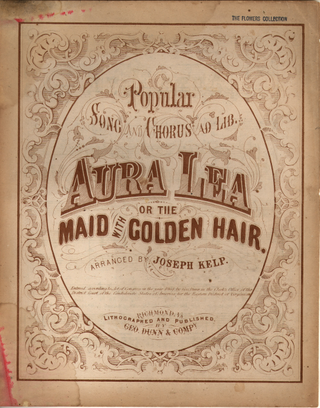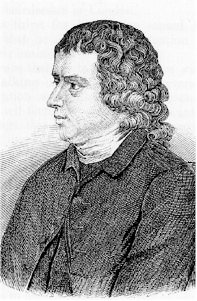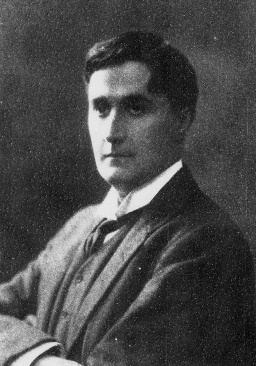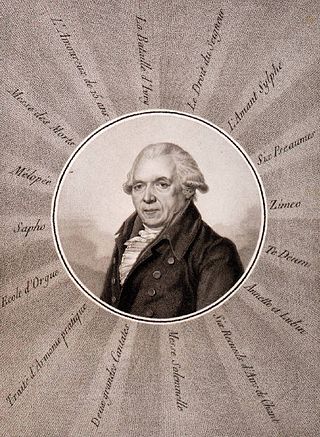
Benjamin Jonson was an English playwright and poet. Jonson's artistry exerted a lasting influence on English poetry and stage comedy. He popularised the comedy of humours; he is best known for the satirical plays Every Man in His Humour (1598), Volpone, or The Fox, The Alchemist (1610) and Bartholomew Fair (1614) and for his lyric and epigrammatic poetry. He is regarded as "the second most important English dramatist, after William Shakespeare, during the reign of James I."
"Land of Hope and Glory" is a British patriotic song, with music by Edward Elgar, written in 1901 and with lyrics by A. C. Benson later added in 1902.
Philostratus or Lucius Flavius Philostratus, called "the Athenian", was a Greek sophist of the Roman imperial period. His father was a minor sophist of the same name. He flourished during the reign of Septimius Severus (193–211) and died during that of Philip the Arab (244–249), probably in Tyre.

The "Londonderry Air" is an Irish air that originated in County Londonderry, first recorded in the nineteenth century. The tune is played as the victory sporting anthem of Northern Ireland at the Commonwealth Games. The song "Danny Boy" written by English lawyer Fred Weatherly uses the tune, with a set of lyrics written in the early 20th century.

"The Passionate Shepherd to His Love" (1599), by Christopher Marlowe, is a pastoral poem from the English Renaissance (1485–1603). Marlowe composed the poem in iambic tetrameter in six stanzas, and each stanza is composed of two rhyming couplets; thus the first line of the poem reads: "Come live with me and be my love".

The Serenade for Tenor, Horn and Strings, Op. 31, is a song cycle written in 1943 by Benjamin Britten for tenor, solo horn and a string orchestra. Composed during the Second World War at the request of the horn player Dennis Brain, it is a setting of a selection of six poems by English poets on the subject of night, including both its calm and its sinister aspects. The poets Britten chose to set for the Serenade range from an anonymous 15th-century writer to poets from the 17th, 18th and 19th centuries.
"I Vow to Thee, My Country" is a British patriotic hymn, created in 1921 when music by Gustav Holst had a poem by Sir Cecil Spring Rice set to it. The music originated as a wordless melody, which Holst later named "Thaxted", taken from the "Jupiter" movement of Holst's 1917 suite The Planets.

I Love to Singa is a 1936 Warner Bros. Merrie Melodies animated cartoon directed by Tex Avery. The short was released on July 18, 1936.

"Aura Lea" is an American Civil War song about a maiden. It was written by W. W. Fosdick (lyrics) and George R. Poulton (music). The melody was used in Elvis Presley's 1956 hit song "Love Me Tender".
"Streets of Laredo", also known as "The Dying Cowboy", is a famous American cowboy ballad in which a dying ranger tells his story to another cowboy. Members of the Western Writers of America chose it as one of the Top 100 Western songs of all time.
"Jesu, Joy of Man's Desiring" is the popular English title of the chorale from the 1723 Advent cantata Herz und Mund und Tat und Leben, BWV 147, by Johann Sebastian Bach. The chorale occurs twice in the cantata, with different texts each time : as its sixth movement, Wohl mir, dass ich Jesum habe, and again as its tenth movement, Jesus bleibet meine Freude. The English title derives from famous piano transcriptions made by Myra Hess, in 1926 for piano solo and in 1934 for piano duet, as published by Oxford University Press. Whether played instrumentally or sung in German or English, the chorale is often heard at weddings and during Advent, Christmas, and Easter.
The Scots song "Ae fond kiss and then we sever" by the Scottish poet Robert Burns is more commonly known as "Ae fond kiss". It is Burns's most recorded love song.

"O Sacred Head, Now Wounded" is a Christian Passion hymn based on a Latin text written during the Middle Ages. Paul Gerhardt wrote a German version which is known by its incipit, "O Haupt voll Blut und Wunden".

"Come Thou Fount of Every Blessing" is a Christian hymn written by the pastor and hymnodist Robert Robinson, who penned the words in the year 1758 at the age of 22.
"Always True to You in My Fashion" is a 1948 show tune by Cole Porter, written for the musical Kiss Me, Kate. It is based on Non Sum Qualis Eram Bonae sub Regno Cynarae, a similarly ironic poem by the English Decadent poet Ernest Dowson (1867–1900), which has the refrain 'I have been faithful to thee, Cynara! in my fashion,' and which was probably inspired by Dowson's lifelong friend Adelaide Foltinowicz, who never returned his devotion. The phrase "faithful in my fashion" entered the language before the song was written, and was the title of a 1946 Hollywood film.

The Five Mystical Songs are a musical composition by English composer Ralph Vaughan Williams (1872–1958), written between 1906 and 1911. The work sets four poems by seventeenth-century Welsh poet and Anglican priest George Herbert (1593–1633), from his 1633 collection The Temple: Sacred Poems. While Herbert was a priest, Vaughan Williams himself was an atheist at the time, though this did not prevent his setting of verse of an overtly religious inspiration. The work received its first performance on 14 September 1911, at the Three Choirs Festival in Worcester, with Vaughan Williams conducting.

"Plaisir d'amour" is a classical French love song written in 1784 by Jean-Paul-Égide Martini (1741–1816); it took its text from a poem by Jean-Pierre Claris de Florian (1755–1794), which appears in his novel Célestine.
"Believe Me, If All Those Endearing Young Charms" is a popular song written by the Irish poet Thomas Moore, setting new lyrics to a traditional Irish air that can be traced back into the 18th century. He published it in 1808, naming the air as "My Lodging is on the Cold Ground" from lyrics of British origin with which it was widely associated at the time. The new lyrics were presented in an album of selected Irish melodies arranged by John Andrew Stevenson with “characteristic words” provided by Moore.
William Barksted was an English actor and poet.









